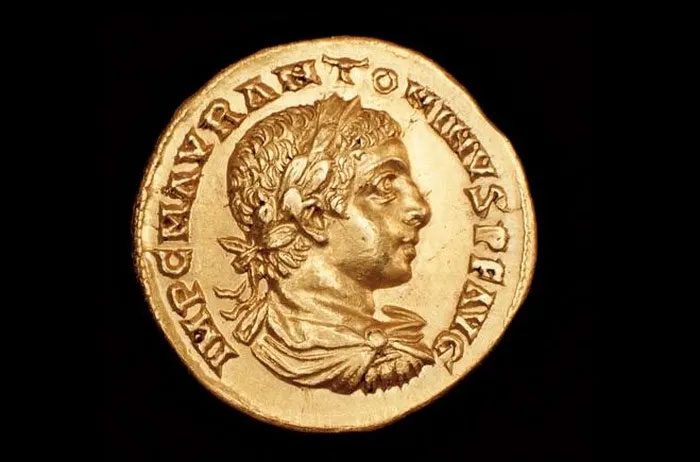The North Hertfordshire Museum in Hitchin (England) has recently declared Roman Emperor Elagabalus as transgender.
The Telegraph (UK) reported this on November 20. Emperor Elagabalus reigned from 218 AD until he was assassinated at the age of 18 in 222.

A coin minted during the reign of Emperor Elagabalus, preserved by the North Hertfordshire Museum. (Photo: New York Post).
Historian Cassius Dio noted that Emperor Elagabalus requested his lover to refer to him as “my lady”. Additionally, the emperor often donned women’s clothing and wore makeup. According to Cassius Dio, Elagabalus was referred to as “wife, lover, queen” and he once confided to his lover, “do not call me Lord, for I am a lady.”
Chronicles also indicate that Emperor Elagabalus requested physicians to perform gender confirmation surgery and promised them a substantial reward.
The North Hertfordshire Museum houses a coin minted during the reign of Emperor Elagabalus. The Telegraph reported that this coin has been featured in LGBTQ-themed exhibitions (representing the lesbian, gay, bisexual, transgender, and queer community).
Commenting on the matter, Liberal Democrat councilor Keith Hoskins told The Telegraph: “Elagabalus certainly preferred the pronoun ‘she’ and therefore this is what we refer to when discussing her in modern times.”
However, some historians have expressed skepticism about the reliability of Cassius Dio’s claims, as he was a historian serving Emperor Severus Alexander, Elagabalus’s successor.
Professor Andrew Wallace-Hadrill at the University of Cambridge noted that Romans often considered accusations of sexual behavior like a woman’s to be one of the worst insults for men. He also emphasized that since Emperor Elagabalus was of Syrian origin rather than Roman, there was likely a racial bias involved.
There is little evidence about the reign of Emperor Elagabalus beyond Cassius Dio’s accounts. Cassius Dio himself admitted that he spent most of Elagabalus’s reign outside of Rome and had to rely on old information. Another contemporary figure, Herodianus, also documented the brief reign of Emperor Elagabalus but is considered to be less biased. Numismatic and archaeological researchers have corroborated Herodianus’s accounts.


















































